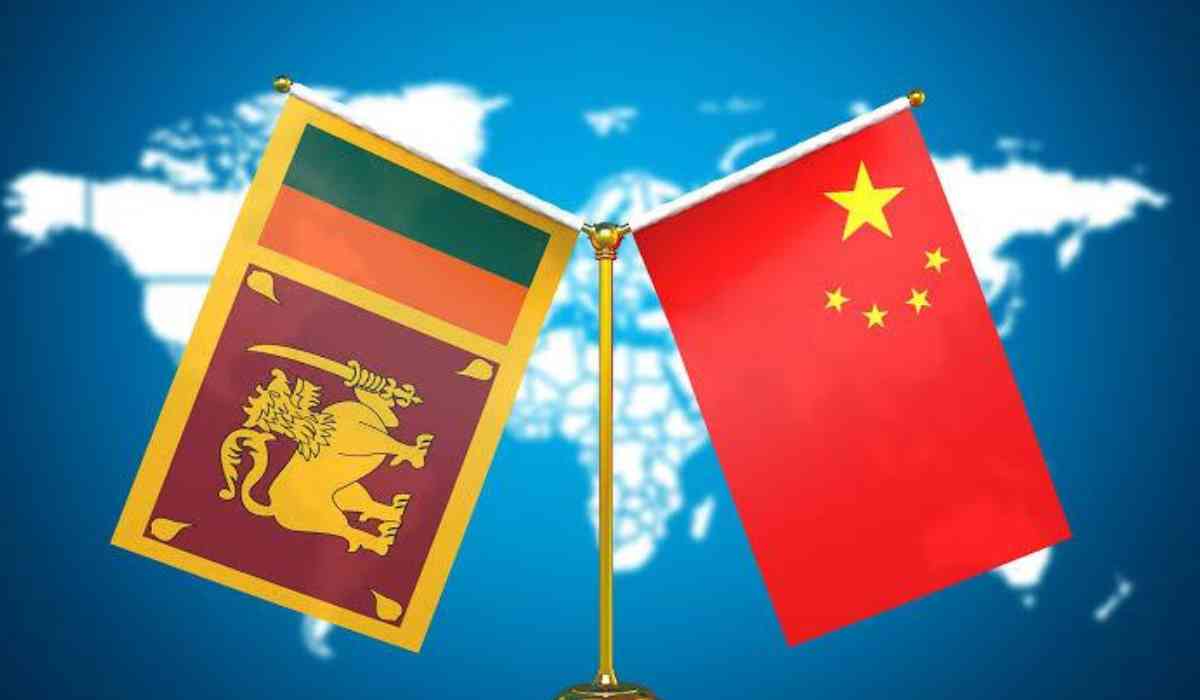Sri Lankan Prime Minister Dinesh Gunawardena concluded his visit to Beijing, which aimed at finalising a debt restructuring deal. He met with Chinese President Xi Jinping and Premier Li Qiang, as well as participated in the Boao Forum for Asia Annual Conference, a high-profile international meeting.
Debt Restructuring?
During Gunawardena's visit, Sri Lanka's prolonged economic crisis took centre stage, particularly given China's significant role as approximately 10 percent of the country's total foreign debt.
In a joint statement released on Friday, it said China is willing to "continue supporting its financial institutions to actively negotiate with Sri Lanka, maintain friendly communication with other creditors, play a positive role in the International Monetary Fund, and assist Sri Lanka in financial relief.”
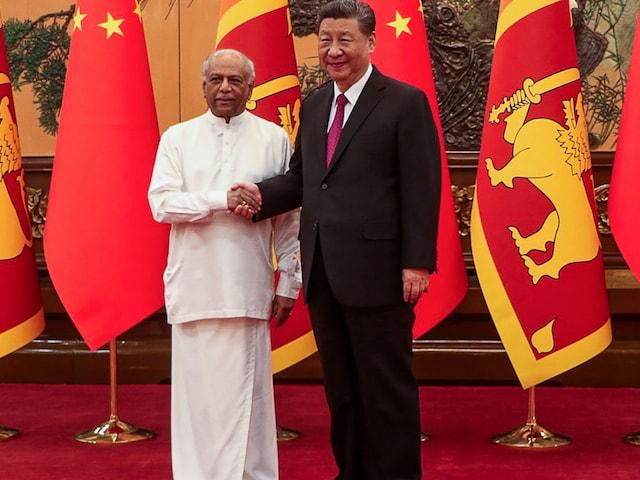
Last year, seventeen creditor countries formed a committee to discuss debt restructuring measures with Sri Lanka, yet China chose to participate solely as an observer. In addressing its Chinese loans, Sri Lanka has expressed its intent to negotiate settlements on terms comparable to those offered by other lending nations.
This closely follows on the heels of the IMF's completion of its second review of the $2.9 billion bailout package with Sri Lanka earlier this month. The IMF emphasized that reaching agreements with the country's commercial creditors, including international bondholders and the China Development Bank, is crucial for Sri Lanka to attain debt sustainability.
Infrastructure
The joint statement highlighted an agreement between the two sides to "make every effort to promote the Port City Colombo and Hambantota Development Project, turning them into flagship projects of the Sino-Sri Lankan joint construction of the 'Belt and Road'."
Xi's extensive Belt and Road global infrastructure initiative, is China’s ambitious multi-country varied infrastructure project. According to the joint statement, Sri Lanka has agreed to accelerate the formulation of a BRI cooperation plan notwithstanding criticism of their financial viability.
However, Certain infrastructure investments made by China in Sri Lanka have sparked global concerns regarding Beijing's debt diplomacy, particularly notable was China's acquisition of Hambantota port through a 99-year debt swap agreement.
Other Agreements
Apart from trade and investment matters, the two sides also reaffirmed “their mutual support on issues concerning each other's core interests and major concerns.”
“The Chinese side reiterates that it will continue to firmly support Sri Lanka in upholding national independence, sovereignty and territorial integrity, and show respect for and support Sri Lanka in independently choosing a development path suited to its national conditions,” the statement said.
China will also increase imports from Sri Lanka including tea and more companies to invest in Sri Lanka, according to the statement.
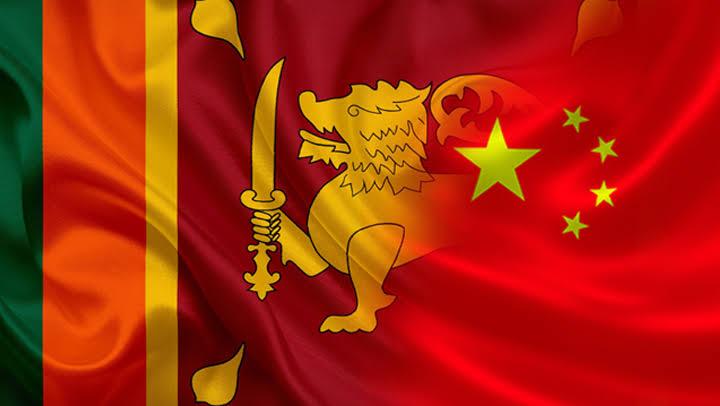
What has Sri Lanka reaffirmed ?
“Sri Lanka reaffirms its firm commitment to the one-China principle, recognising the government of the People's Republic of China as the sole legal government representing the whole of China and Taiwan as an inalienable part of China's territory, supporting all efforts of the Chinese government to safeguard sovereignty and territorial integrity, and opposing ‘Taiwan independence’ in any form,” the joint statement said.
Additionally, Sri Lanka restates its vow to never permit any anti-Chinese secessionist activities to take place on its territory.
According to reports, Sri Lanka intends to grant Chinese businesses more preferential treatment when they invest in Hambantota and the port city of Colombo.
Economic Crisis in Sri Lanka
Sri Lanka became the first Asian lower-middle-income country to default on its sovereign debt in two decades in May 2022. It declared bankruptcy in 2022 and suspended repayments on some US$83 billion in local and foreign loans after it ran out of foreign reserves to finance even essential imports such as food, fuel and medicine.
Ever since the end of the civil war, borrowing to support the nation's infrastructure has resulted in a sharp increase in Sri Lanka's debt since 2009. Being one of the first countries to endorse China's Belt and Road Initiative (BRI) starting in 2013, critics of China have frequently depicted Sri Lanka as falling into a purported "debt trap," wherein unaffordable loans for infrastructure projects are accepted, potentially giving Beijing the ability to exercise military or strategic influence by seizing assets during hard times.
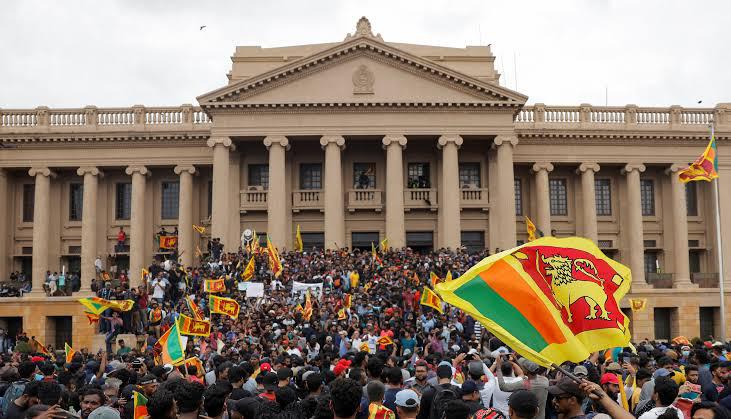
China is currently Sri Lanka's biggest bilateral creditor, having provided financing for many important infrastructure projects, such as ports, highways, and airports. Sri Lanka said in October that it has achieved a deal with China's Export-Import Bank to pay off approximately US$4.2 billion in outstanding debt.
A $2.9 billion International Monetary Fund (IMF) bailout was also obtained by Sri Lanka last year; however, the program was contingent upon a debt agreement that appeased foreign creditors.
Colombo is striving to uphold a US$2.9 billion IMF bailout, which has been extended subject to debt restructuring with foreign debtors and economic development initiatives.
What is India concerned about?
The southern maritime port of Hambantota is India's main worry. It was considered one of the white elephant projects started by the country's ten-year president, Mahinda Rajapaksa, before she left office in 2015.
Rajapaksa heavily borrowed from China for projects that were widely criticised as contributing to a debt trap, ultimately resulting in Sri Lanka's worst economic crisis in history.
Sri Lanka transferred ownership to the state-owned China Merchants Group for $1.12 billion under a 99-year lease agreement in 2017 as it was unable to repay a substantial loan obtained from China in 2017 to construct the Hambantota port.
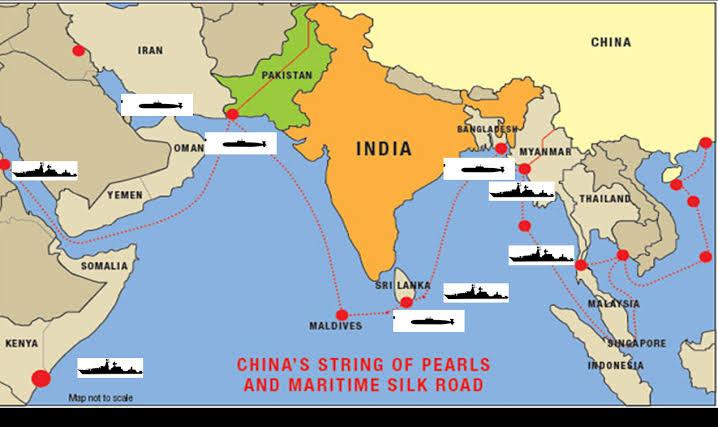
The port holds the potential to become a crucial maritime hub in the Indian Ocean. India raised concern over the leasing of Sri Lanka ports to China, especially amid strained India-China relations, seeing it as a security threat.
Although Sri Lankan leaders assure that the ports won't be used against any external party, India remains cautious of China's expanding influence, often referred to as the "String of Pearls" doctrine. To counter this, India has been investing in other Sri Lankan infrastructure projects like the Mattala airport.
Prime Minister Dinesh Gunawardena’s week-long trip was the first visit by a top Sri Lankan leader to Beijing after Colombo put a moratorium on recurring visits by Chinese research ships to Sri Lankan ports, reportedly due to India's security concerns.
©️ Copyright 2024. All Rights Reserved Powered by Vygr Media.

